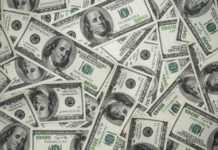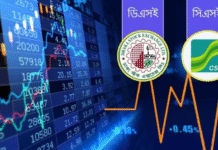
Donald Trump’s announcement of sweeping tariffs – a universal 10% one on all imports which goes even higher for what he considers “the worst offenders” – is a watershed moment.
But as expected, it hasn’t gone down well.
We take a look at how some of the countries have reacted to the tariffs – announced last night – so far.
How Asia has reacted
China, hit with a new 34% tariff, has urged the United States to immediately cancel its latest tariffs and vowed countermeasures to safeguard its own interests.
The US move disregards the balance of interests reached in multilateral trade negotiations over the years and the fact that it has long benefited greatly from international trade, the Chinese Commerce Ministry said in a statement.

“China firmly opposes this and will take countermeasures to safeguard its own rights and interests,” the ministry said, as the world’s largest economies look set to spiral deeper into a trade war that stands to upend global supply chains.
Taiwan, hit with a 32% tariff, has called the move “highly unreasonable”.
Premier Cho Jung-tai also said it would make “serious representations” to the US.
South Korean acting President Han Duck-soo said the global trade war “has become a reality” and his government would be looking at ways to “overcome the trade crisis”.
Bangladesh, meanwhile, has said it is reviewing its tariffs on products imported from the United States.

“The National Board of Revenue is identifying options to rationalise tariffs expeditiously, which is necessary to address the matter,” CA’s Press Secretary Shafiqul Alam said in a press statement posted on Facebook.
Japan said its 24% levy was “extremely regrettable” and could violate World Trade Organization and US-Japan agreements, while Thailand said it would negotiate its 36% tariff.

India and Pakistan are yet to officially comment on the matter.
Europe and elsewhere
European Commission chief Ursula von der Leyen, meanwhile, has said the tariff decision was a “major blow to the world economy”.
Giving a statement on Thursday morning, von der Leyen said the new tax imports will see “uncertainty spiral”, causing “dire” consequences “for millions of people around the globe”.
She emphasised the impact on the most vulnerable countries, pointing out that some of those nations are now subject to some of the highest US tariffs, the BBC reports.

She also vowed that Europe would take a unified approach and warned that the European Union – which will be subject to a 20% tariff – is preparing countermeasures in case negotiations fail.
“If you take on one of us, you take on all of us”, she said.
UK Prime Minister Keir Starmer has said a trade war was not in their national interest.
He said talks on an economic prosperity deal were ongoing, and “we will fight for the best deal for Britain”.

Starmer also said he would only strike a deal with Donald Trump “if it is in our national interest and if it is the right thing to do for the security of working people, protects the pound in their pocket that they have worked hard to earn”.
He also said nothing was off the table, adding, “our intention remains to secure a deal”.
Italy, on the other hand, has expressed an openness to working towards a deal with the US to prevent “a trade war”.
Italian PM Giorgia Meloni, a Trump ally, has also said the decision was “wrong”.

Prime Minister of Spain Pedro Sánchez has reiterated that Spain would “continue to be committed to an open world”.
In Ireland, Taoiseach Micheál Martin said Trump’s decision was “deeply regrettable” and benefitted “no-one”.
Switzerland’s Karin Keller-Sutter says the country “will quickly determine” its next steps.
Australia’s Anthony Albanese says “this is not the act of a friend”.
Economic officials in Israel, which had scrapped all tariffs on American imports ahead of the announcement, were said to be in “complete shock” over its 17% tariff, local media reported.
“We were sure that the decision to completely cancel tariffs on imports from the US would prevent this move”, an official told local media.

 Keep updated, follow The Business Standard’s Google news channel
Keep updated, follow The Business Standard’s Google news channel







